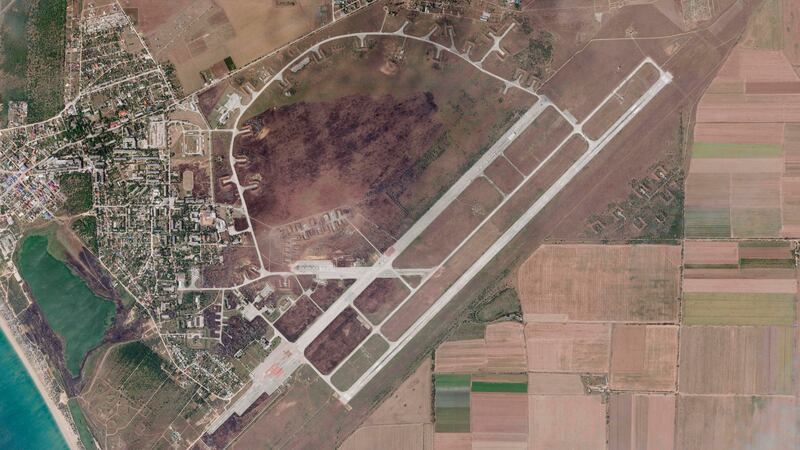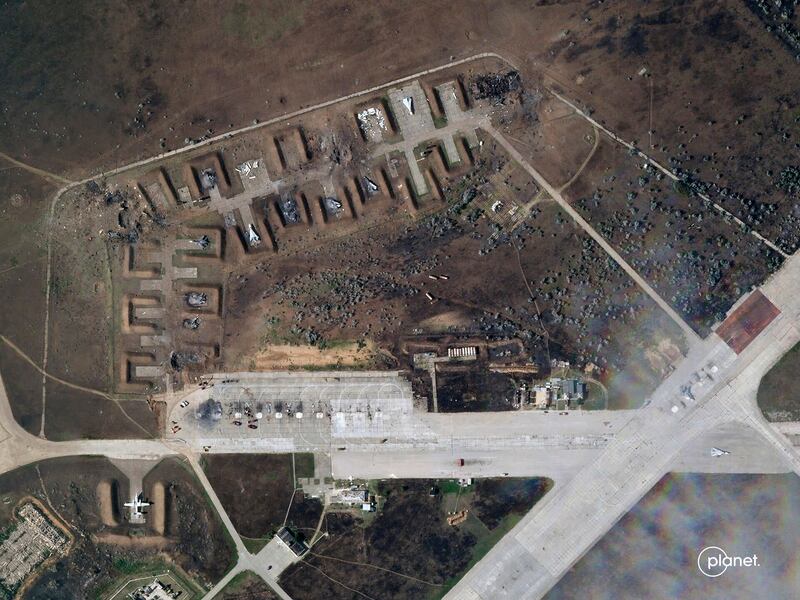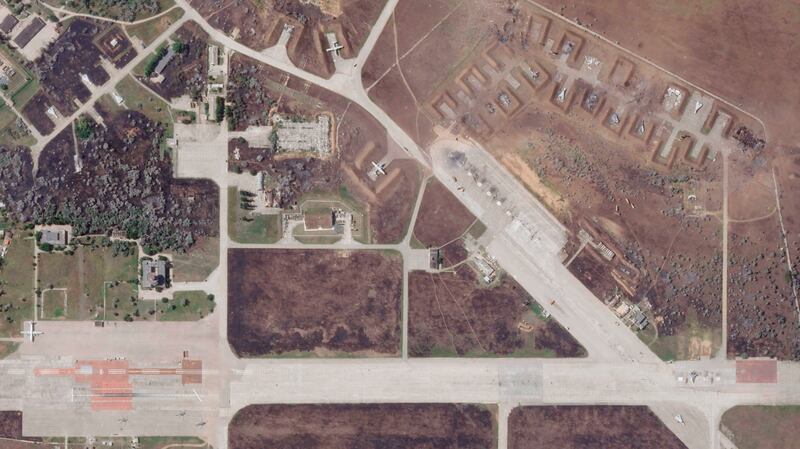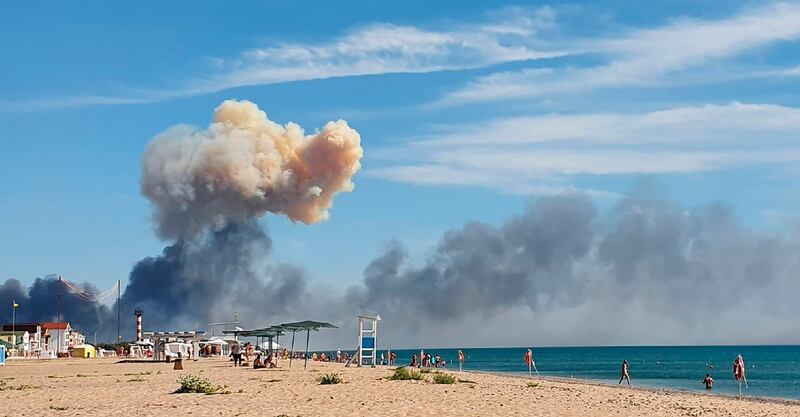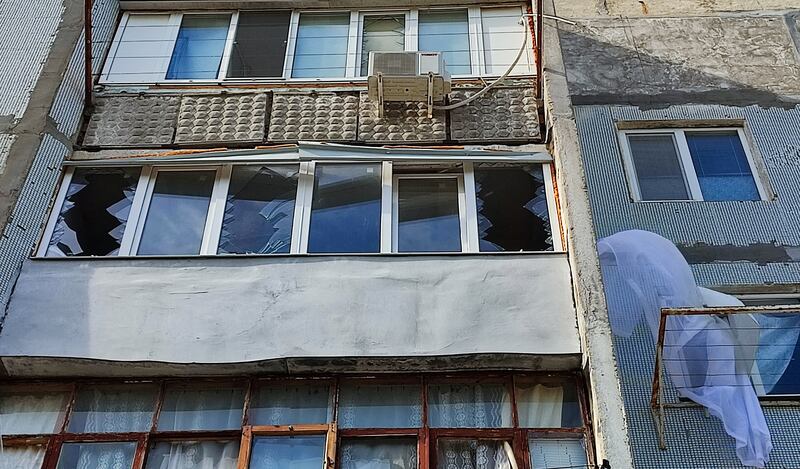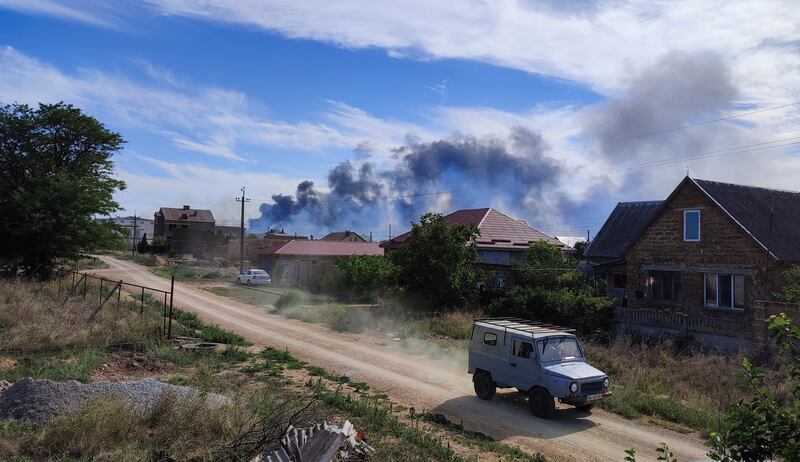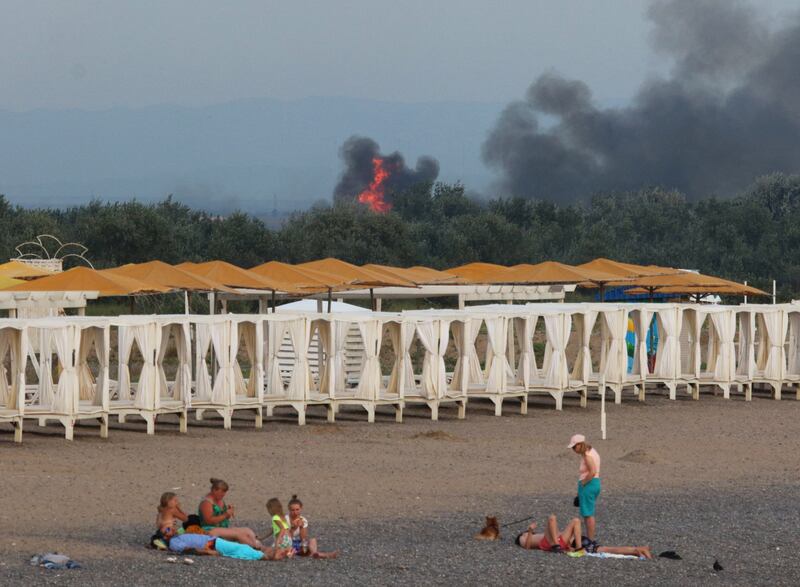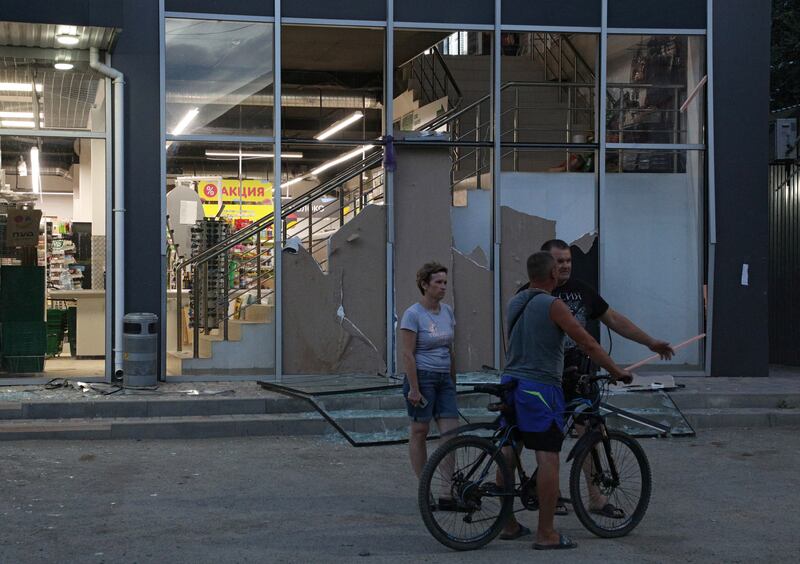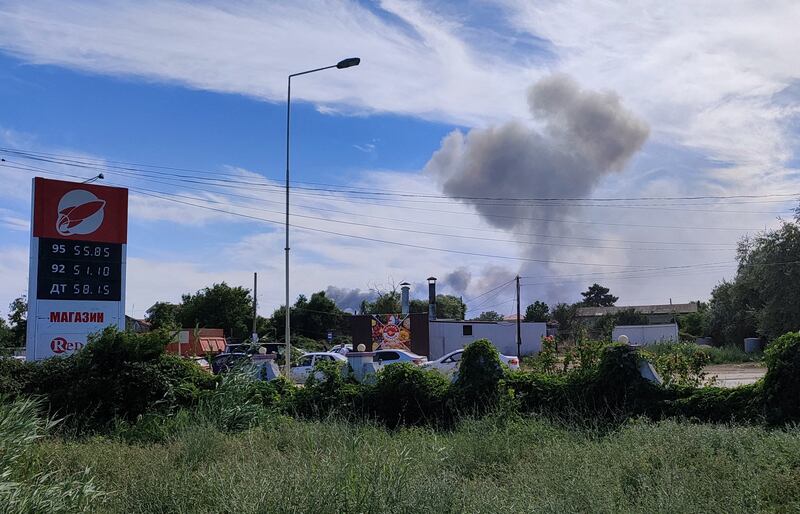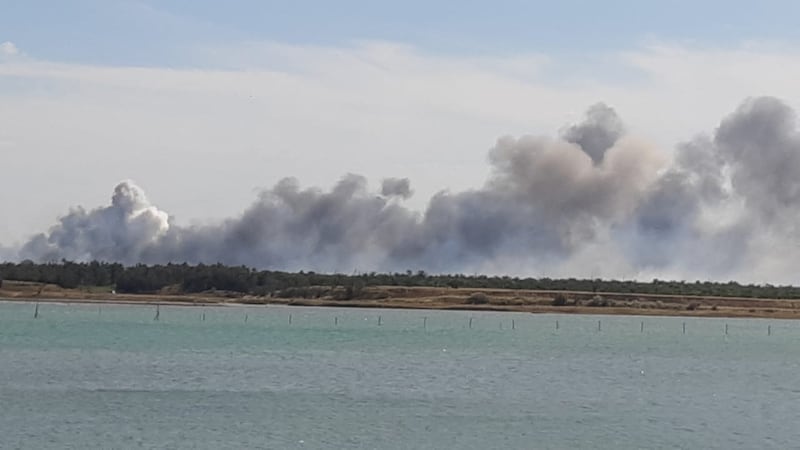A series of explosions at a Russian air and naval base on Tuesday have left military analysts wondering what could have struck the site, which lies far beyond the range of US missiles supplied to Ukraine, including the Himars multiple rocket launcher.
One person was killed in the blasts, while six others were injured, Crimea's health department said.
In June, the US supplied Ukrainian forces with the advanced, precision-guided rocket system, which American officials said is being used to hit Russian rear area bases and logistics centres almost 70 kilometres behind the frontline.
But the Saki airbase, home to Russia’s Black Sea Attack Regiment, is 220km from the nearest Ukrainian positions in Kherson, which is in the south of the country.
Russia said ammunition stored at the base exploded but claimed the site had not been shelled and said no aircraft had been damaged.
On Wednesday, Ukrainian President Volodymyr Zelenskyy said that Kyiv intended to retake the Crimean Peninsula, which was has been occupied by Russian forces for the past eight years. He did not mention the explosions at the air and naval base which sparked a major fire.
“This Russian war against Ukraine and against the entire free Europe began with Crimea and must end with Crimea — with its liberation,” he said in his nightly video address.
"We will never give it up ... the Black Sea region cannot be safe while Crimea is occupied."
US defence analyst Chuck Pfarrer tweeted that a weapon called the ATACM, or Army Tactical Missile System, had most likely been used in the attack.
This is a device the US has not yet officially supplied to Ukraine but which has a range of 300km.
Others said that Ukrainian Neptune missiles may have been used.
Ukraine already has at least one type of long-range ballistic missile system, the Grіm-2, which has a range of 280km.
Russia annexed the peninsula from Ukraine in 2014 in a move which sparked international outrage. President Vladimir Putin claimed the move was necessary to protect ethnic Russians living in the region and praised Russia's "all-conquering patriotic force".
Explosions at Russian base in Crimea
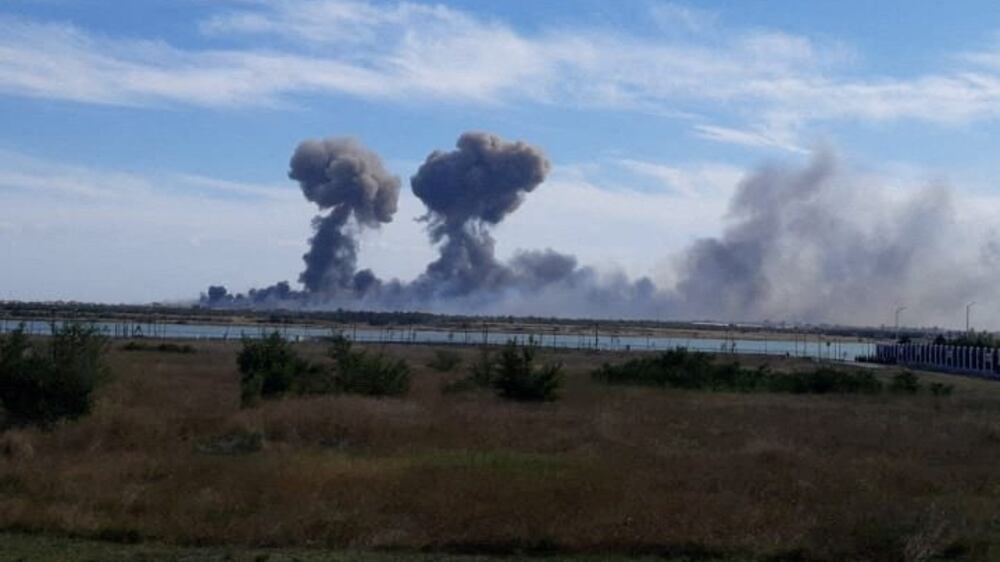
Tourists stunned
A village near the base, Novofedorivka, is popular with tourists and is close to long stretches of sandy beach and Lake Saki, where visitors sometimes bathe in its mineral-rich mud.
The blast shattered windows in the village and stunned beachgoers, who filmed huge mushroom clouds of smoke and debris from the explosions.
Footage from the scene showed people scurrying past sun loungers on the sand.
Natalia Lipovaya, a tourist who spoke to the Associated Press, said she was walking from her car when the blast occurred.
"The earth is gone from under my feet," she said.
"I'm standing and it seems to me that I either took off or went underground. I was so scared. My husband jumped up; he was resting and said 'what happened?' And then we were moving away and we immediately saw such a cloud and a column of smoke above us."
A resident of Novofedorivka, Sergey Milochinsky said the blast was like a "nuclear explosion".
"I went into the bathroom and heard a big roar. [I had] a feeling that something big had fallen.
"I went out to look out the window and there was such an impression, as if a mushroom cloud from a nuclear explosion had risen there. There were two big explosions like that. Everything began to fall around, collapse."
Kyiv has denied responsibility for the blast, with a senior adviser to Mr Zelenskyy, Mykhailo Podolyak, saying that local Ukrainian resistance forces might have acted alone to sabotage the base.
G7 leaders on Wednesday released a joint statement demanding Moscow “immediately hand back full control” of the Zaporizhzhya nuclear power plant to the Ukrainian authorities.
The group — made up of the UK, the US, Canada, France, Germany, Italy and Japan, together with the EU — said Ukrainian staff “must be able to carry out their duties without threats or pressure”.
Russian troops captured the plant — the largest nuclear site in Europe — during the early days of the invasion and have held it ever since.
Peter Kotin, the head of Ukraine’s nuclear power company, this week told the BBC the Russians were using the plant as a military base to launch attacks against forces loyal to Kyiv.
The G7 and the EU said they were demanding "that Russia immediately hand back full control to its rightful sovereign owner, Ukraine, of the Zaporizhzhya nuclear power plant as well as of all nuclear facilities within Ukraine’s internationally recognised borders to ensure their safe and secure operations”.
“Ukrainian staff operating the Zaporizhzhya nuclear power plant must be able to carry out their duties without threats or pressure. It is Russia’s continued control of the plant that endangers the region.”
